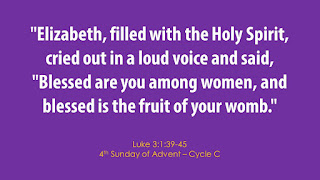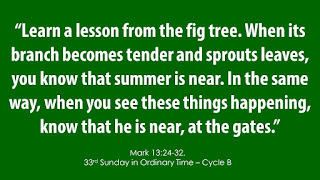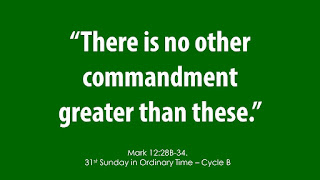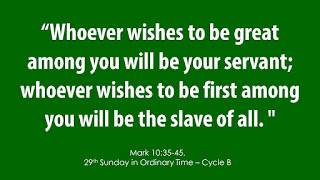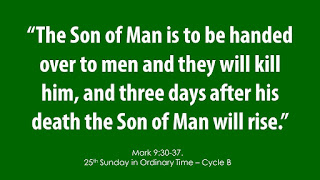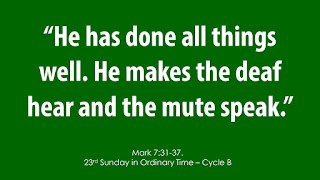Holy Gospel of Jesus Christ according to Saint Matthew 1:1-25.
Gospel Reading at Christmas Vigil Mass.
The book of the genealogy of Jesus Christ,
the son of David, the son of Abraham.
Abraham became the father of Isaac,
Isaac the father of Jacob,
Jacob the father of Judah and his brothers.
Judah became the father of Perez and Zerah,
whose mother was Tamar.
Perez became the father of Hezron,
Hezron the father of Ram,
Ram the father of Amminadab.
Amminadab became the father of Nahshon,
Nahshon the father of Salmon,
Salmon the father of Boaz,
whose mother was Rahab.
Boaz became the father of Obed,
whose mother was Ruth.
Obed became the father of Jesse,
Jesse the father of David the king.
David became the father of Solomon,
whose mother had been the wife of Uriah.
Solomon became the father of Rehoboam,
Rehoboam the father of Abijah,
Abijah the father of Asaph.
Asaph became the father of Jehoshaphat,
Jehoshaphat the father of Joram,
Joram the father of Uzziah.
Uzziah became the father of Jotham,
Jotham the father of Ahaz,
Ahaz the father of Hezekiah.
Hezekiah became the father of Manasseh,
Manasseh the father of Amos,
Amos the father of Josiah.
Josiah became the father of Jechoniah and his brothers
at the time of the Babylonian exile.
After the Babylonian exile,
Jechoniah became the father of Shealtiel,
Shealtiel the father of Zerubbabel,
Zerubbabel the father of Abiud.
Abiud became the father of Eliakim,
Eliakim the father of Azor,
Azor the father of Zadok.
Zadok became the father of Achim,
Achim the father of Eliud,
Eliud the father of Eleazar.
Eleazar became the father of Matthan,
Matthan the father of Jacob,
Jacob the father of Joseph, the husband of Mary.
Of her was born Jesus who is called the Christ.
Thus the total number of generations
from Abraham to David
is fourteen generations;
from David to the Babylonian exile,
fourteen generations;
from the Babylonian exile to the Christ,
fourteen generations.
Now this is how the birth of Jesus Christ came about.
When his mother Mary was betrothed to Joseph,
but before they lived together,
she was found with child through the Holy Spirit.
Joseph her husband, since he was a righteous man,
yet unwilling to expose her to shame,
decided to divorce her quietly.
Such was his intention when, behold,
the angel of the Lord appeared to him in a dream and said,
"Joseph, son of David,
do not be afraid to take Mary your wife into your home.
For it is through the Holy Spirit
that this child has been conceived in her.
She will bear a son and you are to name him Jesus,
because he will save his people from their sins."
All this took place to fulfill
what the Lord had said through the prophet:
Behold, the virgin shall conceive and bear a son,
and they shall name him Emmanuel,
which means "God is with us."
When Joseph awoke,
he did as the angel of the Lord had commanded him
and took his wife into his home.
He had no relations with her until she bore a son,
and he named him Jesus.
---
The long genealogy has a single purpose. It is to remind us that Jesus is the promised Christ born of David's line. He is King. He is a Jew. He is like us. He is King because he descended from a king. He is Jew because He inherited the traditions of a Jewish lineage. Above all, He is like us, because He embraced a human heritage.
It is important to stress that He is of kingly line because although as God, He is already King, He too is promised to inherit for us the promises made to David. It is important to stress that He is a Jew, because He will perfect the covenant God made to humanity through Abraham, the father of faith. It is important to stress that He is like us, because it is in becoming man that God fully revealed Himself to us and made good His promise of being Emmanuel - God is with us.
Rejoice then because Jesus was born not only to family of Mary and Joseph, but for us all. To us is born the Savior, the fulfillment of all of God's promises. He is salvation. He is freedom from sin. And in Him is united God and humanity. Merry Christmas!

